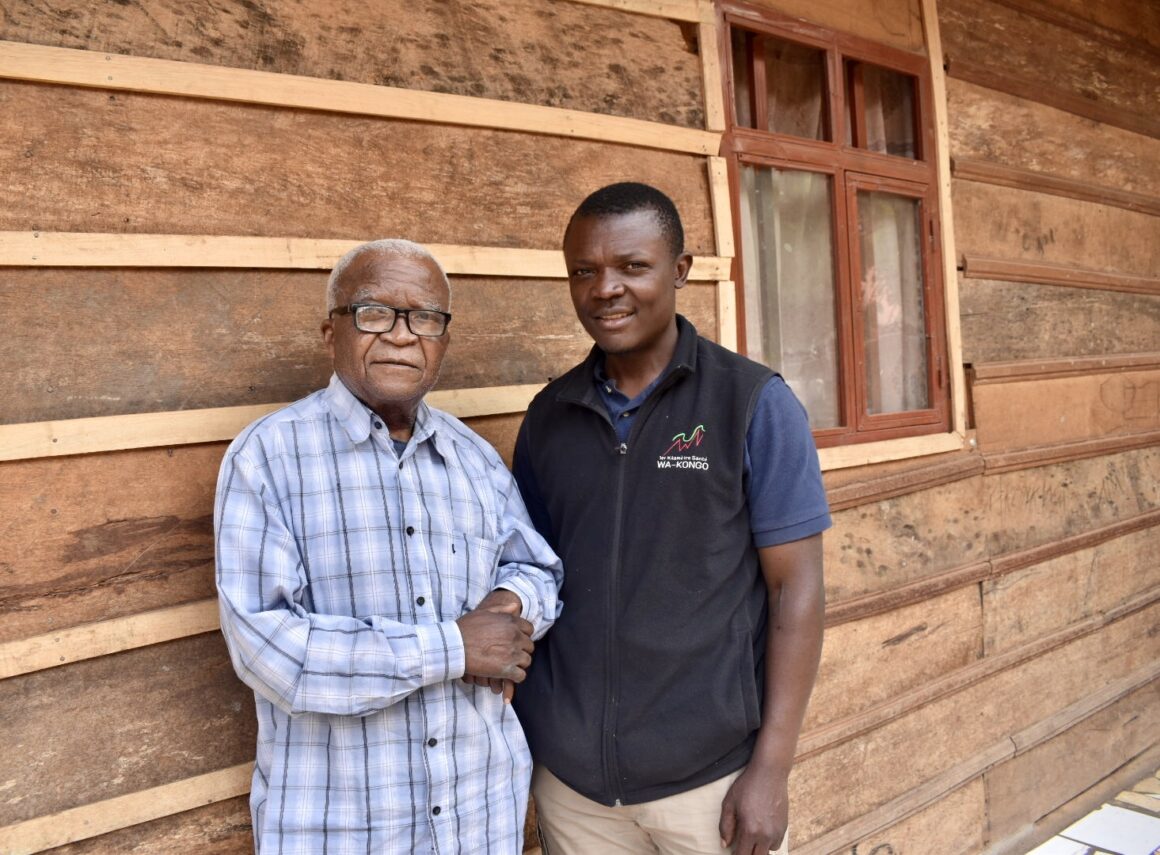I, Ali, think I was about 16 years old when I met Papa Mulyumba. I met him through his son, Mulyumba Wakilongo. In Congo we call an adult often by the name of their child, and so I have always known him as Papa Mulyumba.
I went to high school with Mulyumba in Bukavu, South Kivu, DRC. He lived in our neighborhood and walked by my house on the way to school. I waited for him each morning and we walked together. Along with one other friend, we were called the three musketeers.
Mulyumba was the top of our class. He was especially strong in physics and math. He was brave and an inspiration to youth and adults alike. We both went on to medical school. He told me he wanted to become a doctor so that he could take care of his father when he was older, although at the time I don’t think his father had any health problems.
I visited Mulyumba’s house often and got to know his family. I remember when we were in high school his father was working for the Office National du Café, and always had coffee at home. Bags of green coffee were stacked near the entrance of the home, and he brewed coffee for us. We drank it usually with sugar, and milk if it was available. He told us stories about growing coffee in DRC.
When we were 18 years old, Mulyumba began having seizures. He was diagnosed with epilepsy, and seizures were so difficult to control that he missed school and had to make up a year. This was on top of delays we had already had in our education due to war.
While he was in medical school, our dear friend Mulyumba died of status epilepticus, which is a prolonged seizure that can be fatal.
We were all devastated.
I finished medical school in a different city, but I visited his parents every time I came back home. I think seeing Mulyumba’s friends must have brought a combination of hope and sadness for his parents. We were a reminder of their loss, but also a connection to Mulyumba.
Not long after Mulyumba’s death, Papa Mulyumba developed diabetes and had a debilitating stroke. As a medical doctor and in the spirit of Mulyumba, I wanted to take care of him.

After working for 40 years for the National Coffee Office and paying a part of his salary into a sort of retirement fund, he found that those funds were not available to him in his old age. With weakness from his stroke and muddy city roads with steep slopes, walking to medical visits was not an easy feat. When I was living in the US, I arranged for physicians to visit him at home, to follow up on his chronic health problems.
I visited Bukavu and Papa Mulyumba with my wife Lucy in 2016, and at the time he offered us some of his land high in the mountains of South Kivu to farm arabica coffee on. We didn’t have the means to do this at the time, but we look back and wonder if we could be enjoying the coffee we grew together by now if we had.Now we are living as a family in Bukavu since we started a nonprofit health organization, and we see Mulyumba’s parents often. Papa Mulyumba continues to share his wisdom of life and coffee in DRC with us. We still talk about his land and farming coffee together. Maybe someday we will be able to join him in coffee farming as a family to honor Mulyumba and our relationship that has developed because of him.
1 comment
I enjoyed Ali’s post about his relationship with Pappa Mulyumba.
Comments are closed.